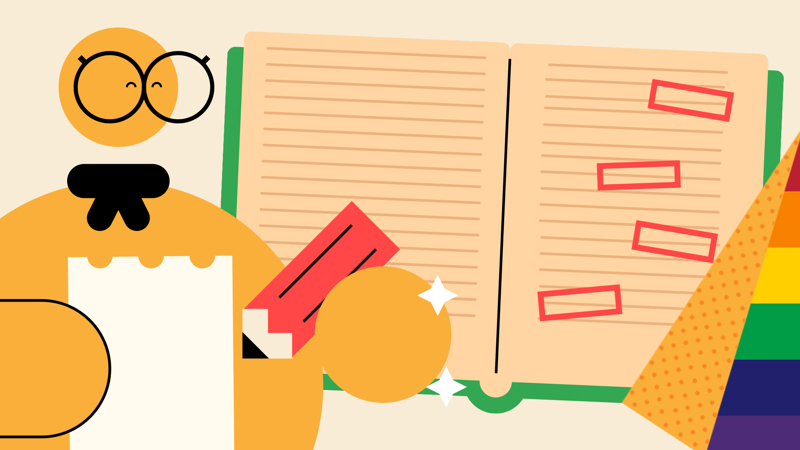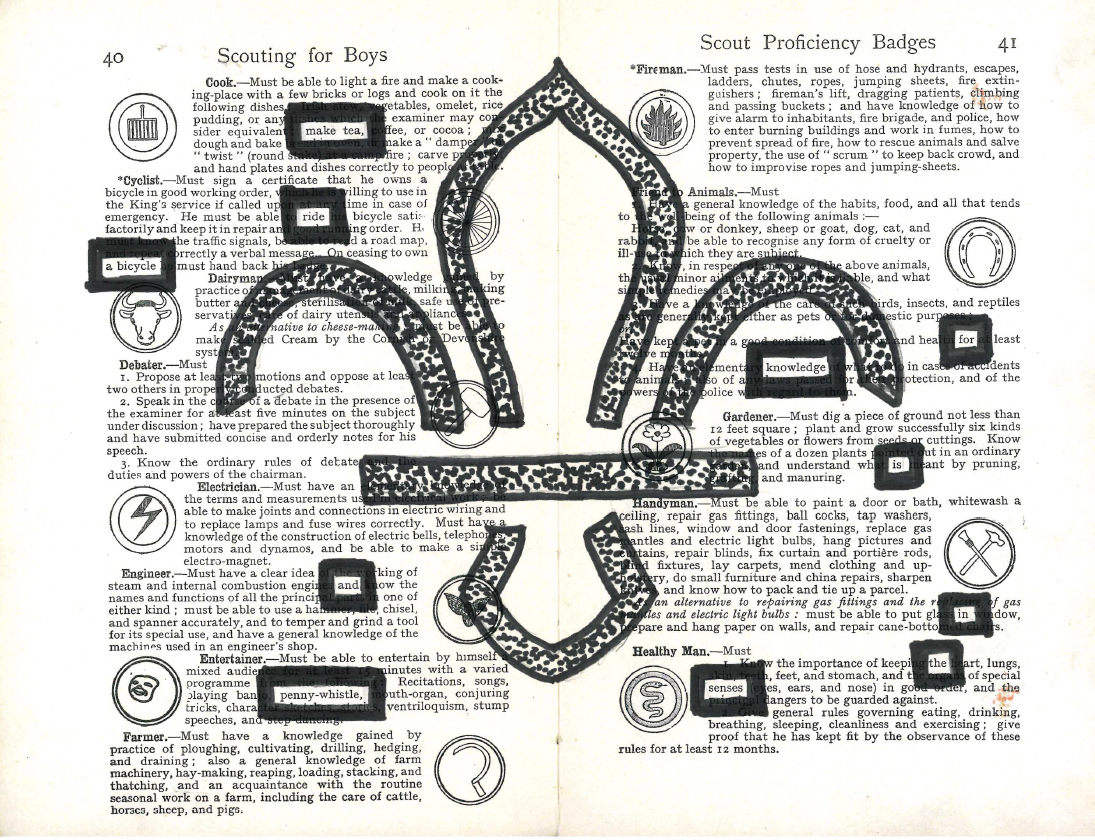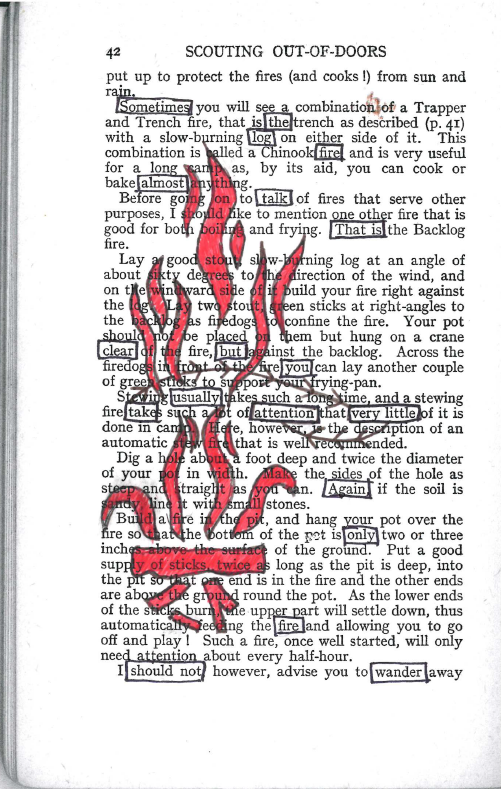
Be a blackout poet
You’ll need
- Coloured pens or pencils
- Old newspapers or magazines
Theme this activity for LGBT+ History Month
Use the principles of blackout poetry to create poems or word art for Pride or LGBT+ History Month.
Your creations should be all about inclusivity and supporting LGBT+ people in Scouts and beyond. People could think about how Scout values (integrity, respect, care, belief, and cooperation) relate to LGBT+ equality. Older young people might want to dig a bit deeper and think about how it feels to be accepted (or not) and other issues that affect LGBT+ people.
Unsure where to start? Check out The Politics of Erasure – a blackout poetry project that created queer poetry from straight love stories.
Before you begin
- Decide whether you want to run this activity as one base or option during a creative session. It may work well to give people a choice of this activity, an activity for their Artist Activity Badge, or an activity for their Entertainer Activity Badge.
- Scouts could also give this at go at home and share their blackout poems at the next session.
- It’s up to you whether you use old newspapers and magazines or photocopy pages from books. You could ask people to suggest books to photocopy or ask them to bring photocopies of their favourite pages (if you do this, make sure to take some spares).
- If you haven't got printed pages to use, you could try this online blackout poetry maker.
What’s a blackout poem?
- The person leading the activity should show everyone the blackout poetry examples below. Has anyone seen this type of poetry before?
- The person leading the activity should explain that blackout poems are made using pages from books, newspapers, or magazines. Blackout poets pick out single words or phrases from the existing text, then piece them together to make something new. This kind of poetry embraces randomness, and also gives people a chance to mix poetry and visual art.
Become a poet
- Everyone should get into a space with a pencil and a page of text.
- Everyone should scan the page looking for a ‘theme word’ to inspire possible topics for their poem.
- Everyone should read the page more carefully. They should lightly circle any words that connect to their theme word or resonate with them – it’s also OK to circle words just because they sound nice! The person leading the activity should remind everyone that this is all about self-expression. There aren’t any right or wrong answers here.
- Everyone should piece together the circled words in the same order that they appear on the page (so, in English, top to bottom and left to right). They should aim for about eight lines of poem – it’s up to them where a line stops and a new one starts.
- Everyone should go back through their poem – do they want to remove any words? Are there any spaces where they need to add something? Everyone should experiment with a few different possibilities. If things aren’t working out, it’s OK to go back and repeat step three to find some more words.
- Once everyone’s settled on a final poem, they should erase any circles around words they’re not using.
- Everyone should circle the words they are using more obviously – they could press harder with their pencil or use a pen.
- Everyone should share their poem with someone else. They should chat about what it means and how they pulled words together.
Blackout poetry examples


Reflection
This activity was all about trying new things. What do people usually think of when someone says ‘poetry’? Was this activity about poetry? People may disagree – when they think of poetry, they may jump to rhyming, broken sentences, or a pattern. The poems people created in this activity structured words in meanings and rhythms, even if they didn’t rhyme or follow a traditional format. Just like other forms of writing, poetry can be anything the author wants it to be.
This activity was also about communication. What messages did people’s poems give about their themes? Instead of thinking of words, people had to work with what was already on the page and transform it into something else. What does it mean to be a writer (or a poet)? Are people only writers if their work’s been published in a physical book, or is it enough to just give writing a go and enjoy it? Do people’s ideas have to be entirely original, or is it OK for people to be inspired and base creations on stories or poems they’ve already read?
Safety
All activities must be safely managed. You must complete a thorough risk assessment and take appropriate steps to reduce risk. Use the safety checklist to help you plan and risk assess your activity. Always get approval for the activity, and have suitable supervision and an InTouch process.
Embrace creativity by adding an illustration or design to the page. Remember not to draw over the circled words in the poem!
Why not try it in pairs? You’ll have to work creatively to bounce ideas off each other and settle on a masterpiece.
People can use whatever tools work for them – including different coloured paper, tablets, or computers. They could also work in pairs so only one person needs to write. At the end of the day, it’s about creativity – it’s OK if the grammar gets a bit confused or the spelling isn't exact.
All Scout activities should be inclusive and accessible.
If anyone really enjoyed this activity, they could continue the challenge and keep creating poetry. Why not keep a poem diary, and use it to express thoughts and feelings about everyday events? If people want to, they could take part in an open mic session to share some of their creations.
Everyone could choose their own material, whether it’s a page from a favourite magazine, newspaper, or book.
